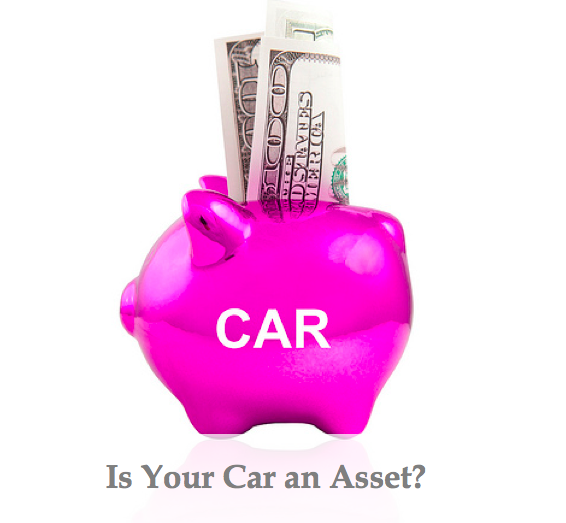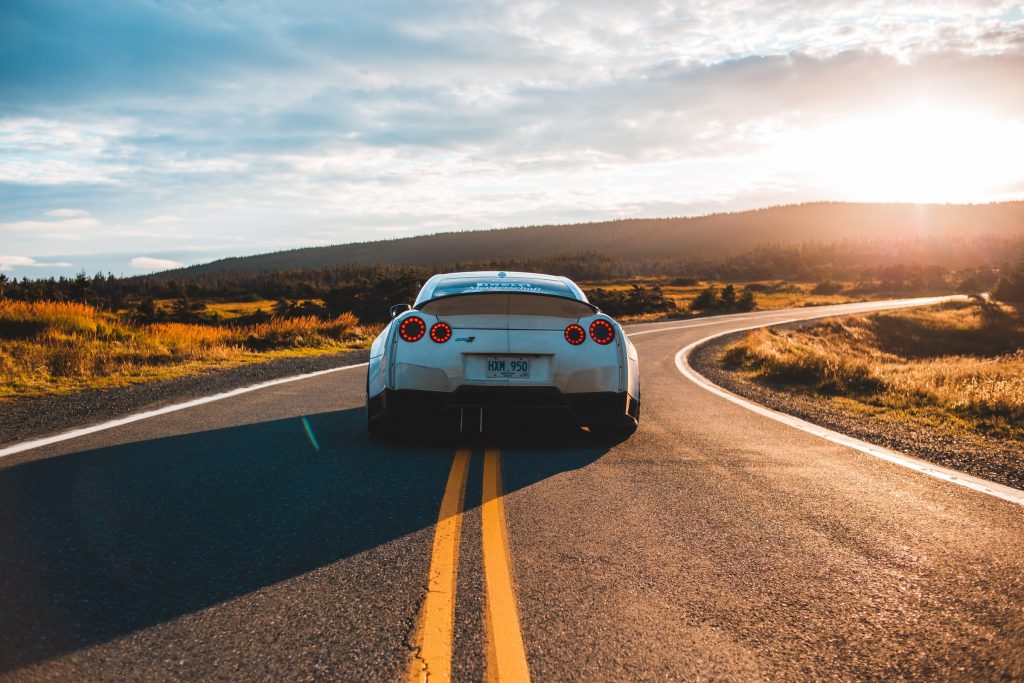We’ve discussed before whether or not your house is an asset or a liability in other articles, but now we are looking at whether your car is an asset or liability as well. Your car is on your net worth statement, right? So, it must be an asset. But just like with a house, it depends on what your definition of an asset is. Your car is typically a large purchase. It can cost thousands, and sometimes tens of thousands of dollars. Most people typically consider cars an asset because you can sell it without losing money.
Image via Tax Credits on Flickr
A Car is an Asset to Most People
Because you can sell your car for a decent amount, it’s usually considered an asset. Banks will consider your car an asset when they are assessing whether or not they will give you a car loan. This is why your application will ask whether you have a car, and how much your car is worth. However, not everything that you can sell is an asset.
The General Definition of an Asset
As we’ve discussed before, the definition of an asset is something that has value, or that aids the owner of the asset in making money. We’re not looking at whether or not the thing is an expense. A car is an expense, but many assets also come with expenses.
Investopedia defines an asset as:
“A resource with economic value that an individual, corporation or country owns or controls with the expectation that it will provide future benefit.”
“Assets are bought to increase the value of a firm or benefit the firm’s operations. You can think of an asset as something that can generate cash flow, regardless of whether it’s a company’s manufacturing equipment or an individual’s rental apartment.”
The defining difference between something that is an asset rather than a liability then is whether or not it will provide benefit. Furthermore, it is a question of whether or not that particular thing increases the person (firm’s) value and generates cash.
With that in mind..
Is Your Car an Asset, or a Liability?
It sounds like your car isn’t an asset. By definition, your home isn’t an asset (not your primary living space) because you live in it. It doesn’t make you money, and it doesn’t add value to you (you need somewhere to live whether or not you are renting or you own).
Does your car make you money? Well, it gets you to and from work. That helps you make money. But you could use public transportation for the same purpose.
Unless you are a pizza delivery driver, Uber driver, driving school instructor, or any other profession that is based in a vehicle, a vehicle is not usually tied directly to your ability to make money. Even if you are one of these things, your primary car is likely not an asset; you usually would use a different vehicle for work purposes.
Sure, your car adds value. It saves you time, lets you drop your kids off at school and sports, and provides you with a sense of safety. However, with insurance, fuel, maintenance, mileage, and all of the other costs that accompany car ownership, the costs almost always outweigh the monetary value of a car.
Many consider a car a depreciating asset, because this is how it shows on company balance sheets. For companies, however, vehicles can be an asset (however depreciating they may be.) For individuals, they can be more of a liability than an asset.
Protect and Build Your Assets
Taking stock of all your assets is an important step in determining your net worth and planning for the future. Once you identify all your assets, you can better protect yourself from natural disasters, divorce, or other unforeseen misfortunes. Some people choose to leverage various assets to ensure they have enough cash on hand in case of emergencies. But first you must inventory all cash, tangible and intangible assets, liquid and fixed assets, fixed-income assets and equity in your name.
Incidentally, if you are interested in learning the basics about how to accumulate assets, I recommend that you pick up a copy of Robert Kiyosaki’s Rich Dad Poor Dad. The book has sold millions of copies, so it is insanely popular.
For more on assets, and how to create some of your own, check out these great articles.
Are you really aware of an asset meaning?
Is Your House an Asset or a Liability?
4 Ways To Improve Your Net Worth
Do you consider your car an asset, or a liability? Do you include your car in your net worth calculation?
Jenny Smedra is an avid world traveler, ESL teacher, former archaeologist, and freelance writer. Choosing a life abroad had strengthened her commitment to finding ways to bring people together across language and cultural barriers. While most of her time is dedicated to either working with children, she also enjoys good friends, good food, and new adventures.


I think it depends the car and the purpose of it. Vintage car for me is like an asset. It command higher price and demand from affluent people.
I’ve heard a few people say this – I think you’re right.
I’ve never considered my car an asset. Sure, it’s held its value quite well over the years since we take really good care of it, but it’s one of those assets that has a high cost up front then immediately loses money the day you drive it off the lot (if new and bought from a dealer). So for a car that’s meant for day-to-day driving, I don’t think that qualifies as an asset. With that said, vintage or collectible cars are different.
A car is definitely depreciating. I don’t consider mine an asset either.
From a net worth perspective, the car is an asset, at least the way that I calculate and define net worth. Specifically, my net worth is defined as a reasonable estimate of what I would have in cash should I liquidate my assets and pay my debts. Since my cars so have value on the open market, the estimated value does get put into my net worth calculations.
It is worth noting that I do ‘write down’ a considerable percentage of the estimated value as an offset to future expected obligations for major repairs or such.
So, I guess for me I try to strike somewhat of a balance.
How much per year do you estimate your car depreciating, Money Beagle?
I think whether or not your car is an asset or liability does depend. We have a classic truck, and I definitely consider that to be an asset. However, our Jeep? That’s probably just a liability.
How much would you be able to sell the truck for, if you had to?
I think a car is certainly an asset–just a rapidly depreciating and costly one!
There’s a new form of carsharing growing that could turn your car into a revenue generator. You make your own car available to the carsharing network. Other people in the carsharing group use your car and pay by the hour and mile. You get a chunk of the revenue. Lots of issues (mainly insurance), but could become a rapidly growing model of those issues are worked out.
Yikes.. I don’t think I’d be comfortable with that for my car!
I don’t include my car in my net worth. Depreciating asset right off the lot so it is a liability. Thankfully my car is paid off, but if I had monthly payments and the car was losing value, doesn’t that sound crazy? I’m going to drive my car into the ground before jumping into a new depreciating asset.
I would absolutely have to agree with you, and I will also be driving my car into the ground – hopefully later rather than sooner.
Like Money Beagle above, I also include my car and motorcycles in my net worth since they’re objects/assets I could sell to raise cash if needed. To determine how much cash they’d raise, I use the retail values for each respective year, make, and model found over at Kelley Blue Book (kbb.com).
Great approach to valuing them. They are definitely sellable, as long as they depreciate in your net worth. Thanks for commenting.
Precisely – they are, after all, depreciating assets, so whenever I recalculate my net worth, I use the most current value data I can find. Ditto real estate value on Zillow.com.
With the age/condition of my car, I joke that it’s a liability safety wise. But all jokes aside, if I commuted with my car and needed the car to get there, would it not be an asset?
My car is a weekend only vehicle so I don’t really need it so it should probably stay in the liability corner. But it does save me time and money when visiting out-of-town family and friends as traveling to rural areas without a car generally costs a lot in bus fare and time spent getting to the destination. So with those savings, I guess it can be asset-ish?
I need my car to get to work, so in my mind its definitely an asset in that regards, although it is costing me money to own it. To make money and have a social life I use a car, plus if needed I could sell it, so its an asset to me even though its a horribly depreciating one lol.
it’s often confusing for me how to categorize things like cars and homes. As per the definition above my car is definitely a liability. But it’s is giving me convenience and an elevated sense of myself which is positively influencing my life in handling things. I am more mobile now, finished things faster which otherwise would have taken longer time, giving me kind of a recognition which is helping me in getting things done. After buying myself a car, I find myself more confident and happier. Shouldn’t we also consider such things these liabilities give? May be I am wrong!
Sure you should! A liability doesn’t necessarily mean that you shouldn’t enjoy or find use in your vehicle. All of my hobbies are financial liabilities, but personal assets – ie reading books, driving my car, my bike.
Financial liabilities and personal assets, that makes perfect sense to me 🙂